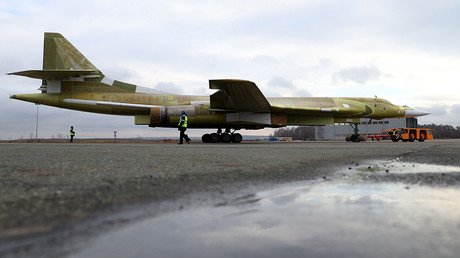‘People forgot the hippos’: Locals struggle to control Escobar’s strange legacy in Colombia
More than 50 wild hippos left behind by notorious drug lord Pablo Escobar in Colombia are threatening both the ecosystem and the safety of locals, but nobody knows what to do with them.
Escobar smuggled four hippos into his former ranch, Villa Napoles, as an addition to his private zoo which was home to hundreds of exotic (and illegal) animals including rhinos, elephants and giraffes.
By the time Escobar died in a police shootout in the early 90s, most of the animals were relocated by the government - except for the hippos. It’s estimated that there are now more than 50 descendants of the non-native animals roaming free in the area.
#SomosNoticia: así registra @NoticiasCaracol en su sección Es el momento de todos de @Bancolombia, la historia de nuestro biólogo David Echeverri, quien se encarga de elaborar las estrategias para el control de los hipopótamos de Doradal. Video: 🎥https://t.co/AnApyCy8zBpic.twitter.com/hV4MCWx0gQ
— Cornare (@cornare) January 29, 2019
“People forgot the hippos,” David Echeverri of CORNARE, the environmental agency in charge of tracking and managing the hippos, told CBS News.
Colombia is now the only place to witness a wild pack of hippos outside of Africa, and are often the main attraction at the estate, which was turned into a theme park in 2007. Most of the pack still live there but it’s difficult to keep them contained, and it’s common for some to go rogue and escape to the local village.
Also on rt.com Pablo Escobar’s hitman Popeye arrested in ColombiaEcheverri says that while locals affectionately refer to them “village pets,” the three-ton animals are a “dangerous” and “territorial” species. No attacks have been reported but the hippos are also accused of displacing native wildlife and the rapidly expanding population will only become more difficult to control, the wildlife expert warns.
Hippo population control options are far from simple, though. Echeverri dismissed killing the animals and instead proposes relocating or sterilizing the animals, both of which would be expensive to put in place.
Like this story? Share it with a friend!















